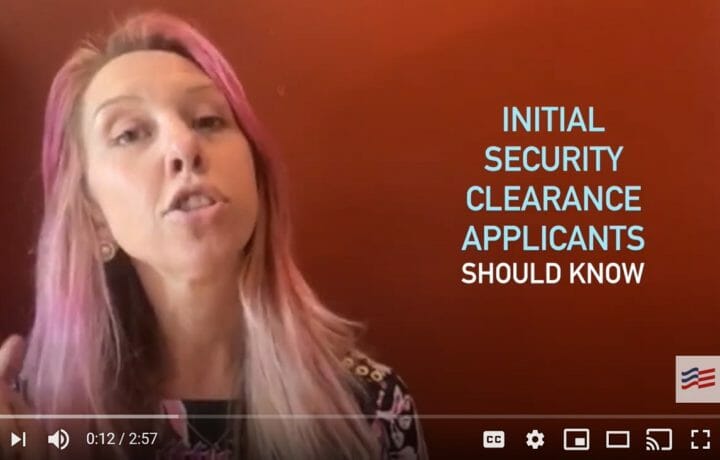If you’re applying for an initial security clearance, there are a few things applicants need to know. It’s easy to assume that the process of obtaining a security clearance is dependent upon the government, or the responsibility of a company or Facility Security Officer (FSO). But the entire personnel security process is very dependent upon the ability of the applicant to successfully fill out the SF-86, providing the required documentation, information, and supporting materials. Here are three things initial clearance applicants should know:
1. The form takes hours to complete. Just ask the government.
It probably is obvious that a 100-page form that asks about everything from mental health to criminal history would take some time to complete, but many applicants fail to consider and plan their time accordingly. The government estimates the time to complete the SF-86 at 150 minutes – that’s 2.5 hours. That’s just the time to input the data into the form – you should double that amount to account for gathering information prior to submitting the document. And like everything to do with the security clearance process, beware of assuming. If you’ve lived at multiple addresses, have foreign relatives, or anything complicated in your background, the form could take much longer.
2. The process begins when you submit the document, not when you start it.
This is a common issue that creates unnecessary delays in the clearance process. Applicants should be aware that their background investigation won’t begin until their SF-86 is completely submitted. That’s why it’s worth getting information together and being ready before the process begins. Review the form before you start, and if you need to gather up materials or start calling references to clarify addresses or other details, do it now.
3. Fingerprints are required to begin the process.
The government released guidance that applicants who are having trouble getting their fingerprints completed due to COVID-19 may see their investigations begin as they seek to get them done, previously, the government wouldn’t begin an initial investigation until the fingerprints were submitted. A recent ClearanceJobs article provided guidance on where to get your fingerprints taken. Even if they aren’t required to get the process moving today, getting them done quickly will help ensure your clearance can be adjudicated quickly once the investigation is complete.




